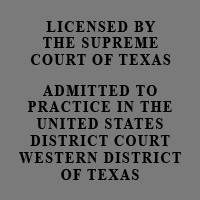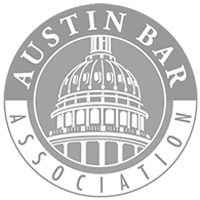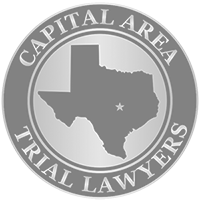Commodity Broker Fraud: Investors and Commodity Brokers Can Earn Large Rewards by Properly and Confidentially Exposing Investment Fraud Through a Commodity Broker Fraud Whistleblower Lawyer by Commodity Broker Fraud Lawyer Jason Coomer
Commodity broker fraud lawyer Jason S. Coomer, works with investors and commodity brokers to expose investment fraud including commodity fraud. Investors, commodity brokers, and other financial professionals that have original information of significant investment fraud are encouraged to expose the fraud through new whistleblower reward laws. These laws offer large financial rewards and allow whistleblowers to report the fraud through a lawyer to protect their identity.
If you are aware of significant investment fraud and a confident review of the potential case, please feel free to contact Commodity Broker Fraud Lawyer Jason Coomer via e-mail message or use our submission form about a potential Commodities Fraud Whistleblower Lawsuit, Futures Fraud Whistleblower Lawsuit, CFTC Violation Whistleblower Action, Commodity Futures Trading Commission Whistleblower Incentive Program Action, or other Whistleblower Bounty Actions.
Commodity Broker Fraud Rewards Can Be Extremely Large In Cases Where Sanctions Including Potential Disgorgement Damages Are in the Millions or Billions of Dollars
The Dodd-Frank Wall Street Reform and Consumer Protection Act created bounties that can be collected by whistleblowers that properly report commodity fraud and other form of investment fraud that result in monetary sanctions by the SEC or CFTC of over one million dollars ($1,000,000.00). The SEC or CFTC can award the whistleblower up to 30% of the money collected. By creating whistleblower bounties for investors and people with specific information of financial fraud, it is expected that hard to detect financial fraud including derivative market fraud and investment fraud will be exposed to help regulate the financial market and prevent large investment corporations, banks, hedge funds, and other large corporations from committing financial fraud of billions of dollars.
For more information on SEC Fraud Whistleblower Bounty Actions and Securities Fraud Whistleblower Bounty Actions, please go to the following Securities Fraud Whistleblower Lawyer SEC Bounty Actions.
Commodity Futures Trading Commission Information, Commodity Broker Fraud Whistleblower Lawsuit Information, and CFTC Whistleblower Incentive Program Lawsuit Information
A futures contract is an agreement to buy or sell in the future a specific quantity of a commodity at a specific price. Most futures contracts contemplate actual delivery of the commodity can take place to fulfill the contract. However, some futures contracts require cash settlement in lieu of delivery, and most contracts are liquidated before the delivery date. An option on a commodity futures contract gives the buyer of the option the right to convert the option into a futures contract. Futures and options must be executed on the floor of a commodity exchange—with very limited exceptions—and through persons and firms who are registered with the CFTC.
Congress created the Commodity Futures Trading Commission (CFTC) in 1974 as an independent agency with the mandate to regulate commodity futures and option markets in the United States. The agency's mandate has been renewed and expanded several times since then, most recently by the Commodity Futures Modernization Act of 2000. The CFTC's mission is to protect market users and the public from fraud, manipulation, and abusive practices related to the sale of commodity and financial futures and options, and to foster open, competitive, and financially sound futures and option markets.
The CFTC is the Federal agency that regulates the trading of commodity futures and options contracts in the United States and takes action against firms suspected of illegally or fraudulently selling commodity futures and options.
Commodity pool operators often solicit investments from friends, neighbors, co-workers, and fellow religious or social group members by using their reputations in the community or their personal relationships. In many cases, however, these investment schemes turn out to be fraudulent, and you can lose your entire investment, in many cases as a result of outright theft.
Individuals and firms that fraudulently solicit funds from investors for commodity futures and options trading are usually not registered with the CFTC. They may operate “Ponzi” schemes in which little or none of the money sent in by investors is ever invested as promised in the commodity markets. Instead, the operator of the scam steals the funds, and creates the illusion of a successful business by using some of the money put in by later investors to pay phony "profits" to earlier investors. This tactic makes it appear to investors that the investment is actually making money, which in turn attracts additional investors. Be wary of such payouts if you do not fully understand their source.
CFTC bounty claims like SEC bounty claims must be brought voluntarily under the Bounty Programs by one or more individuals. The whistleblower or whistleblowers must be a natural person or natural persons, companies or other entity is not eligible to be financial fraud bounty whistleblowers. Successful CFTC and SEC violation bounty whistleblowers can collect financial rewards for whistleblower bounty actions that result in the imposition of monetary sanctions of greater than $1 million dollars.
Through CFTC and SEC Whistleblower Bounty Actions the CFTC and SEC will award between ten percent and thirty percent of the money collected to a qualified whistleblower who voluntarily provides the CFTC and SEC with original information about a violation of the securities laws that leads to a successful enforcement of an action brought by the CFTC and SEC that results in monetary sanctions exceeding $1,000,000.00.
Commodity Broker Fraud Whistleblower Lawsuit Information, CFTC Whistleblower Incentive Program Lawsuit Information, Futures Fraud Lawsuit Information, Commodity Futures Fraud Whistleblower Lawsuit Information, and Commodity Futures Trading Commission Bounty Lawsuit Information
Monitoring the commodity futures market requires a highly coordinated effort including the efforts of investors. It is important that investors that are aware of illegal activities in the commodity futures market step forward and blow the whistle on illegal actions. Some of these actions include the following:
- Fraud: cheating or attempting to cheat you through false claims concerning the likelihood of profit or loss; false or misleading statements about trading or about your salesperson, advisor, or the trading program you use; or false or misleading statements about any other material fact that you relied on in making a decision about futures or option trading.
- Breach of fiduciary duty: a failure by a broker or salesperson to act with special care in handling your account when required to do so by the Commodity Exchange Act or CFTC rules.
- Unauthorized trading: trades made by a broker without your prior specific authorization or a written grant of authority to effect trades without your specific authorization.
- Misappropriation: a broker's unauthorized use or diversion of money that you deposited for the purpose of trading futures or options.
- Churning: excessive trading of your account for the purpose of producing commissions and with disregard of your financial interests.
- Wrongful liquidation: the unauthorized closing of your position.
- Failure to supervise: Failure by a supervisor to diligently oversee the handling of a customer account by the supervisor's partners, officers, employees, and agents.
- Nondisclosure: failure to inform you of the risks associated with futures and option trading, and the failure to disclose any other material fact you required to make a decision about futures or option trading.
If you are aware of these actions being committed it is important that you blow the whistle on these actions. There are several ways to blow the whistle on these actions including anonymous reporting procedures through an attorney.
Commodity Futures Fraud Whistleblower Lawyer, Commodities Fraud Whistleblower Lawyer, CFTC Commodity Futures Trading Commission Incentive Program Lawyer, CFTC Whistleblower Lawyer, Commodities Fraud Bounty Lawyer, and CFTC Bounty Lawyer
As a Commodity Futures Investment Fraud Whistleblower Lawyer and Securities Fraud Whistleblower Lawyer, Jason S. Coomer commonly works with other powerful financial fraud and securities fraud whistleblower lawyers to handle large Securities Fraud Whistleblower Lawsuits, Securities Fraud Bounty Actions, Commodity Futures Fraud Bounty Action, and other Financial Fraud and Investment Fraud Lawsuits. He also works on Medicare Fraud Whistleblower Lawsuits , Defense Contractor Fraud Whistleblower Lawsuits, Stimulus Fraud Whistleblower Lawsuits, Government Contractor Fraud Whistleblower Lawsuits, and other government fraud whistleblower lawsuits.
If you are the original source with special knowledge of fraud and are interested in learning more about a whistleblower lawsuit, please feel free to contact Commodity Futures Fraud Whistleblower Lawyer and Securities Fraud Whistleblower Lawyer Jason Coomer via e-mail message.
Feel Free to Contact Us with any Questions
Associations




